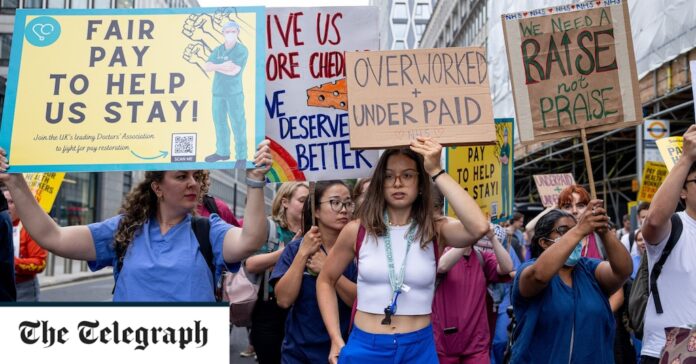Nurses deserve better pay, but the Royal College of Nursing’s demand for a 17.6 per cent rise is excessive
Few Britons who spend time in hospital have anything other than good words for the nurses they meet while there. Working long hours, often in stressful situations, nurses are overwhelmingly sources of great comfort and care to those in the wards they patrol. So news that they have voted to strike for the first time in their history will cause dismay both in Westminster and around the country.
The nub of the dispute is pay. Earlier this year, the Government offered an increase of around 5 per cent, in line with the recommendations of the NHS Pay Review Body. The Royal College of Nursing is demanding almost 18 per cent. For all their hard work, the scale of that request – at a time when so many families elsewhere are feeling the pinch and the Chancellor is struggling to balance the books – is exorbitant.
This is by no means the first pay rise that nurses have had. Between 2018 and 2021, nurses’ salaries increased by a minimum of 6.5 per cent, well above the rate of inflation. Indeed, while pay starts at £27,055 for newly qualified nurses, so-called “Modern Matrons” can get more than £90,000 and consultant nurses almost £110,000. It is certainly better spent on them than on the hundreds of bureaucrats at NHS England who earn similar six-figure sums.
The threat to walk out is made all the more worrying by the poor state of NHS provision as it stands. At a time when patients face delays for critical treatment, and winter bugs and a possible resurgence of Covid are likely to undermine the service further, these strikes must risk jeopardising patient welfare, whatever guarantees the union might offer.


